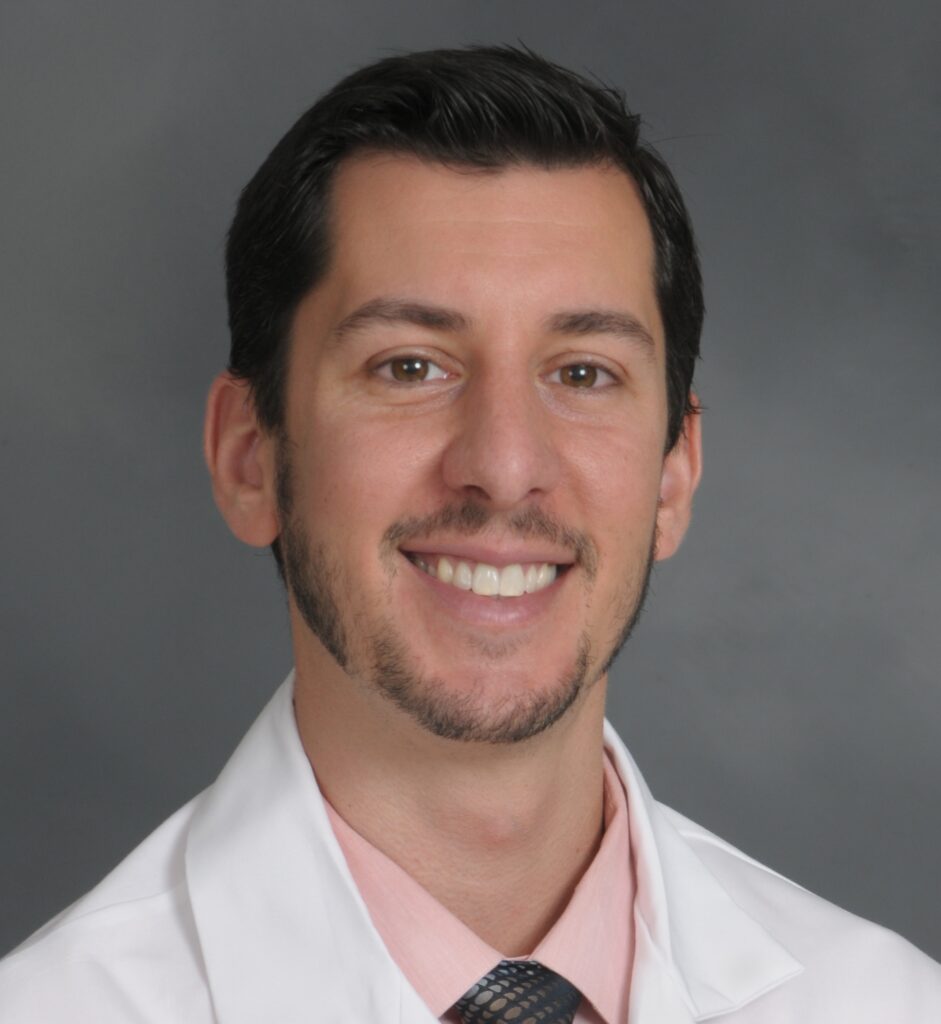March 20, 2024

Andrew Handel, MD, FAAP, is Assistant Professor of Pediatrics at the Renaissance School of Medicine at Stony Brook University in Stony Brook, New York. He is a lifelong New Yorker, earning his undergraduate degree at Cornell University, his medical degree at SUNY Upstate Medical University, and completing his pediatrics residency and pediatric infectious diseases fellowship at Stony Brook Children’s Hospital.
Dr. Handel currently serves as the Associate Editor for Supplements for the Journal of the Pediatric Infectious Diseases Society and previously served on the Publications Committee. He is the current recipient of the LINCATS Clinical Research Career Development Award, focusing on congenital CMV and tick-borne diseases.
Why Pediatric ID? I first caught the infectious disease “bug” as an undergraduate. I grabbed an issue of National Geographic as I ran onto a train. An article on malaria caught my eye, and by the end of the ride I was completely enthralled by the parasite’s historic and global impact and the scientists working to combat it. I followed that passion and, a year later, spent a month in rural Ghana learning about malaria and other tropical infections. As a medical student, the pediatric and adult infectious diseases teams at SUNY Upstate in Syracuse took me under their wing and introduced me to the potential impact one can have in infectious diseases. I found the same generosity of time, mentorship, and expertise with the peds ID team at Stony Brook Children’s, where I’ve developed my academic home and have remained on as faculty.
Where have you taken you ID focus? My work falls into three major buckets: patient care, clinical research, and serving as the Associate Editor for Supplements of JPIDS. My time with JPIDShas been an incredible gift. As a fellow, I volunteered on the Publications Committee. During one meeting there was discussion of a potential supplement on metagenomic sequencing. I mentioned my personal interest in the topic and, before I knew it, Janet Gilsdorf gave me the greenlight to take the project on myself. The trust she placed in me opened so many doors, ultimately leading to my role on the JPIDSeditorial team.
Since taking on the JPIDS role, we’ve taken a systematic approach to every step of the development process, from soliciting new supplement proposals, empowering guest editors to oversee their work from conception to publication, and bringing innovative content to our readers. For example, our most recent supplement, Advances in Pediatric Transplant Infectious Diseases, provides reviews written by international leaders, including many PIDS members, on the latest in transplant ID. We also have upcoming supplements in various stages of development covering RSV prevention, viral hepatitis elimination, acute respiratory infection diagnostics, and an article series we are thrilled to support on sustainability through the infectious diseases lens.
Having benefited from the Journal’s generosity so early in my career, I put a strong emphasis on engaging fellows and junior faculty in the process, as both authors and guest editors. The opportunities offered to me by PIDS and JPIDS has been invaluable for my personal and career development. If you have an idea for an interesting JPIDS supplement, please contact me.
What is a recent development in peds ID you are working on? I’m fortunate to have two major research interests – congenital CMV (cCMV) and tick-borne diseases. I serve as the lead investigator for PROACTIVE NYS, a longitudinal cohort study of children with cCMV throughout New York state. The NYS Department of Health is in the middle of a one-year pilot program that added CMV testing to the universal newborn screen. About 200,000 babies in New York will undergo screening this year, of which an estimated 500 will have confirmed cCMV. Leveraging the opportunity, we’ve developed a collaborative network of all 11 peds ID cCMV referral centers throughout the state. We hope to enroll the entire cohort of affected infants and follow their long-term neurodevelopmental and hearing outcomes. The study’s results will have major implications for our understanding of cCMV natural history and universal screening.
Additionally, living in eastern Long Island, tick-borne diseases are a regular occurrence and another research passion of mine. I’m most excited about our ongoing work to describe the clinical features Rickettsia amblyommatis infections. This microbe is found in 60% of the lone star ticks in the northeast, yet we know close to nothing about its health implications for humans. The work is a part of a wonderful collaboration at Stony Brook University between the pediatric ID, adult ID, and microbiology/immunology departments.
What do you enjoy most about being a PIDS member? What keeps you renewing your membership? I frequently find myself in awe of the accomplishments made by my peds ID colleagues. Whether on our JPIDS associate editors weekly call or at a PIDS conference, it’s easy to look around the room and feel the tremendous impact our society and its members have had on human health. Despite those accomplishments, PIDS has found a way to maintain the community’s close-knit, supportive atmosphere. As a newcomer, this helped me to get involved and find my own niche. The expectation of inclusivity and kindness set by PIDS and those more senior in the field has been critical to the career development for those of us newer to peds ID.